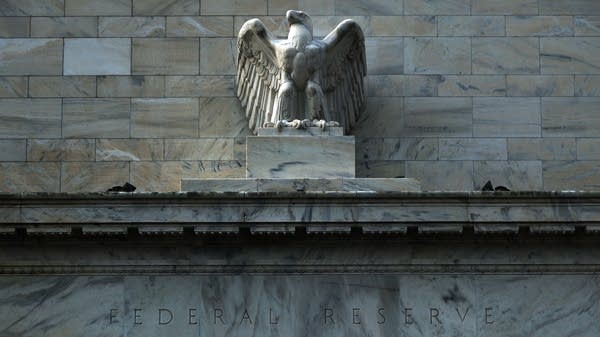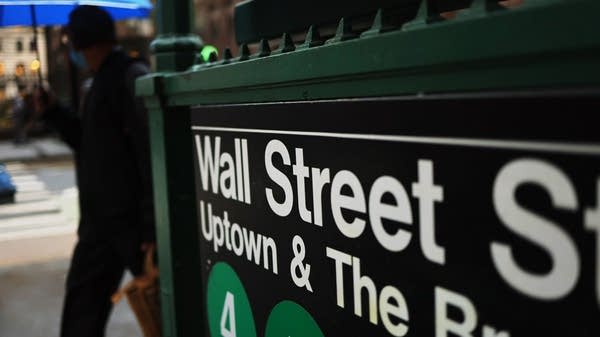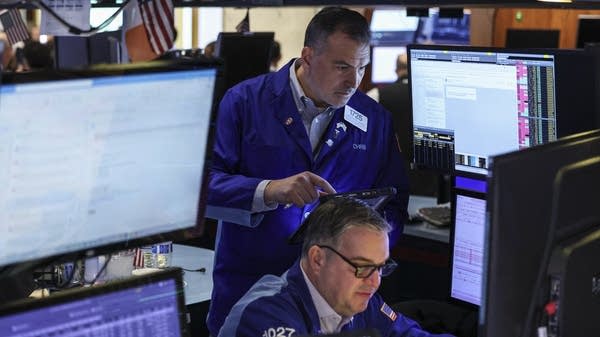If I'm close to retirement and seeing this stock market volatility, what should I do?
The past month has been a “buckle up” moment for investors nearing retirement.

April is officially in the books, and we can now do the math: The S&P 500 stock index — with all its highs and lows in the month’s tariff whirlwind — ended down just 0.7% for the month. The Nasdaq was down 0.8% in April, and the Dow Jones Average fell 3.1%, but that represents some recovery from a headline about a week ago showing the Dow was poised to have its worst April since the Great Depression.
But just because a roller coaster comes to rest at about the same place it started doesn't mean it wasn't a wild ride. The real-time index of stock market volatility — the VIX — started the month at 21, hit 52 ahead of President Donald Trump's tariff turn and is currently back down to a calmer (but not quite chill) 24.
For stock investors who don't need their money now, perhaps it’s no big deal. But if you are doing the required sign-up for Medicare because you’re within spitting distance of turning 65, it's been seatbelt time.
“Marketplace Morning Report” host David Brancaccio consulted with Pam Krueger, a registered investment advisor and founder of Wealthramp, which helps people connect with vetted financial advisors. You also may know her work hosting a weekly personal finance show on PBS called “MoneyTrack.” The following is an edited transcript of their conversation.
David Brancaccio: I know if you have a long time horizon, you can blow off all this market to-ing and fro-ing. If you did so after the 1987 stock market crash, it was a great bet. And even with the 2008 financial crisis. This is all true, unless people are close to retirement.
Pam Krueger: Right now, that is the number one question: How, given the current volatility, am I going to make sure that I am never going to run out of money in retirement? And I am hearing from people every single day who are, you know, thinking that they're going to retire, they want to retire in the next maybe five years, two years, one year. You know, they were planning on retiring in September, and now they're saying, "Uh! Can I really still do this?"
Brancaccio: And what can you possibly tell them? "You should have saved 20 years ago." I mean, that's not a good answer.
Krueger: When you're thinking about nine months ago, how things were quiet, the market was making new highs, and you literally were just like, you know, asleep at the switch a little bit. But now all of a sudden, it's like, "Oh my gosh, I have to be both proactive and defensive at the same time. So what does that look like?" This is the time to really look with fresh eyes and say, you know, do I really have a resilient plan? Not for accumulating, like you said, but now you have to have a plan, and this is where real retirement planning actually starts — to take the money out without running out of money during your lifetime.
Brancaccio: I mean, you could put it all in money market cash. That is safer, but it's not going to keep going up. And I'm sure that anyone who's done any financial planning knows you're counting on some of it continuing to go up.
Krueger: Right. And it's never a question of, "Oh, should I be in the market, or should I be out of the market?" It's a question of, "How do I stay invested?" And then you want to be really honest with yourself and say: "Do I have a real strategy that feels like it's going to be resilient, that's been stress-tested for down markets?" And either you feel like you can do that yourself, or this is when a lot of people turn to, you know, advisors to find advisors who can help them. But this is where my best advice here is, if you do decide to turn to a financial advisor, at this point — especially in your lifetime — when you're not accumulating, you're looking at actually using the money you've saved, it's vitally important to take your time and learn how advisors really operate, how they're compensated. There's just way too much at stake.













